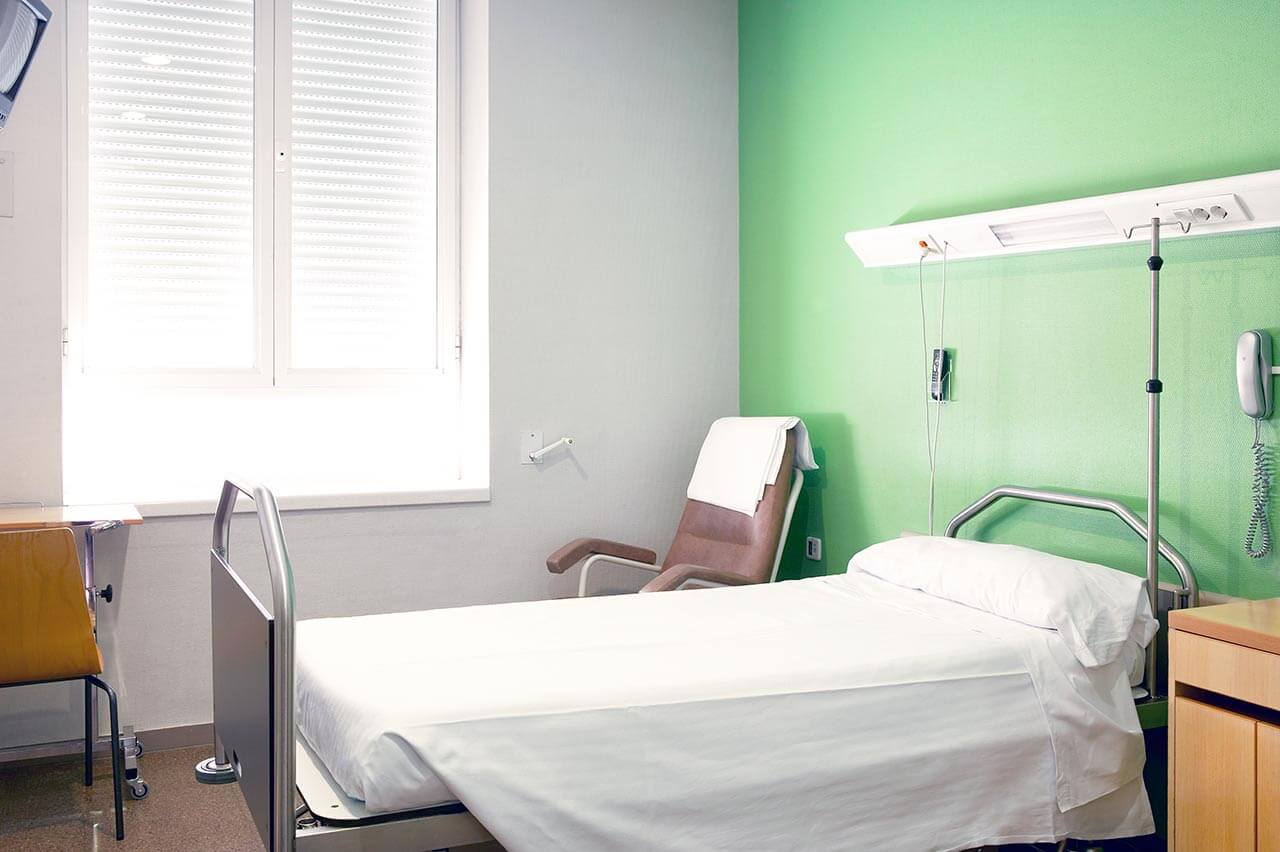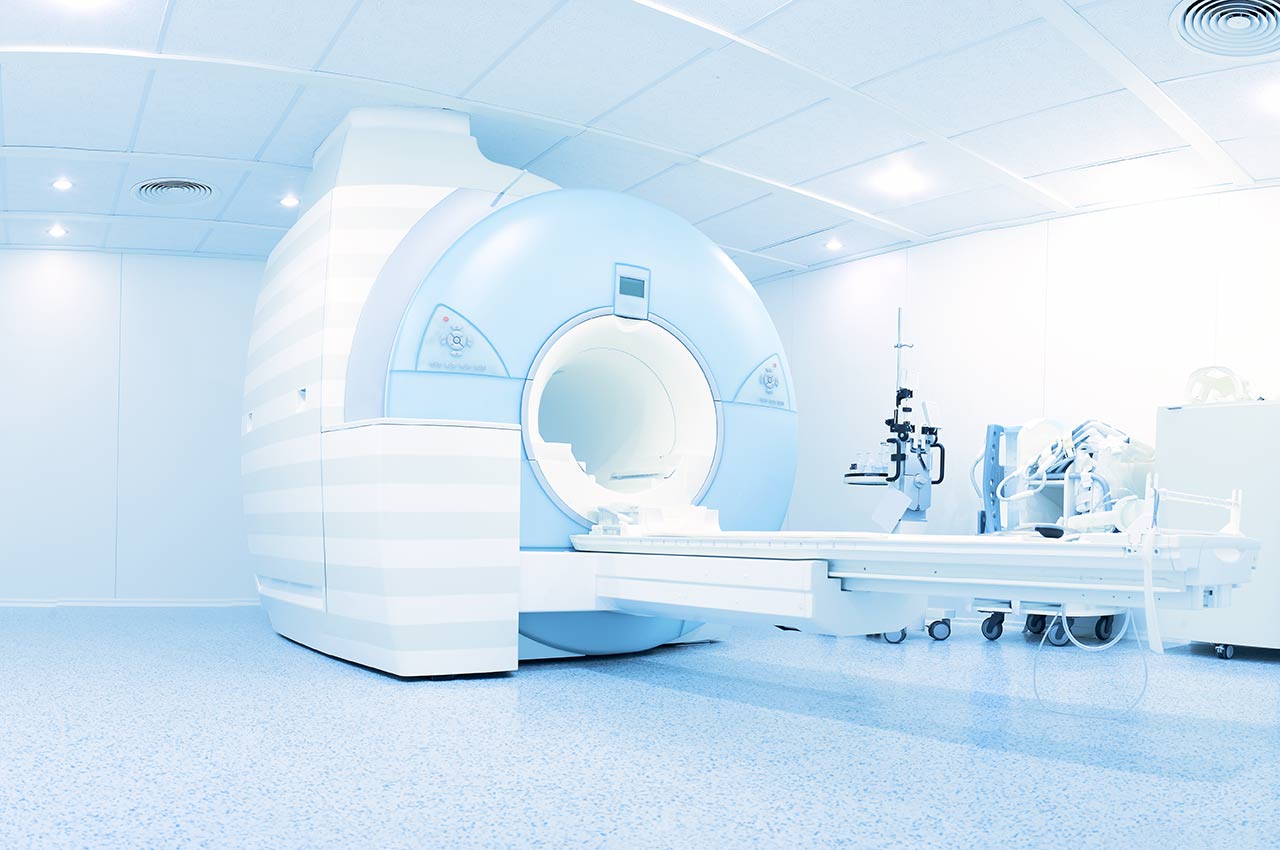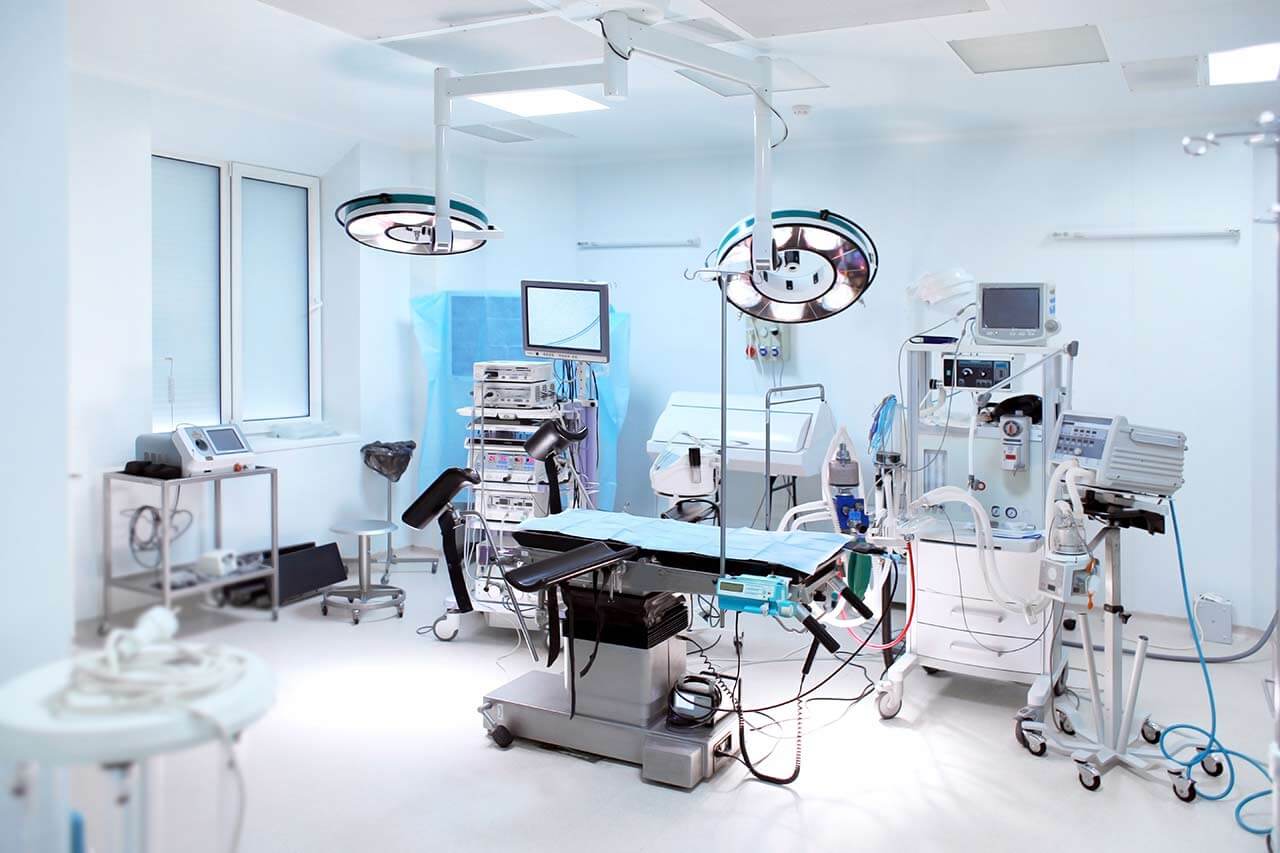
The program includes:
- Initial presentation in the clinic
- history taking
- general clinical examination
- abdominal ultrasound
- MRI scan (on indication 1200 €)
- nursing services
- consultation of related specialist
- development of individual treatment plan
- written statement
Required documents
- Medical records
- US scan (if available)
Service
You may also book:
 BookingHealth Price from:
BookingHealth Price from:
About the department
The Department of General, Abdominal, Transplant, Vascular and Pediatric Surgery covers the whole range of services in these fields. The department specializes in the treatment of diseases of the upper and lower gastrointestinal tract, liver, gallbladder, pancreas, thyroid and parathyroid glands, adrenal glands, as well as overweight. In addition, the department is a recognized Center for Vascular and Pediatric Surgery. The Chief Physician of the department is Prof. Dr. med. Christoph-Thomas Germer.
The department successfully performs treatment of diseases of the upper and lower gastrointestinal tract. In addition to swallowing disorders and other functional disorders of the esophagus and stomach, the department offers the effective treatment of benign and malignant tumors. The department is part of the Comprehensive Cancer Center Mainfranken, thanks to which the treatment meets the highest international standards. The malignant diseases of the colon and rectum are treated within the Colorectal Cancer Center, certified by the German Cancer Society.
Other activities of the department include the treatment of diseases of the liver, gallbladder and pancreas. The department's specialists are experts in the treatment of gallbladder diseases. In addition to the treatment of gallstone disease, the surgical treatment of rare malignant diseases of the gallbladder and biliary tract is carried out here. The department also provides treatment for benign and malignant diseases of the liver and pancreas. Liver transplantation is performed within the Interdisciplinary Hepatology Center.
The spectrum of vascular surgery covers all traditional reconstructive interventions on the vessels below the diaphragm and above the aortic arch.When performing such operations, doctors use minimally invasive, endovascular methods.
Special attention is paid to pediatric surgery. The department's specialists proceed from the fact that children are not small adults and therefore need an individual approach and special treatment methods. A variety of benign and malignant diseases in children are successfully treated using surgical interventions. Along with the interventions on the abdominal organs and surgeries for inguinal and umbilical hernia, it also offers medical care in the field of pediatric traumatology (conservative and surgical treatment of bone fractures and the consequences of accidents).
The diagnostic and therapeutic range of the department includes:
- Diseases of the upper gastrointestinal tract (esophagus and stomach)
- Esophageal diseases
- Swallowing disorders
- Achalasia
- Reflux disease (reflux esophagitis)
- Esophageal cancer
- Stomach diseases
- Gastrointestinal function laboratory
- Pathological overweight (obesity)
- Diseases of the liver, gallbladder and biliary ducts, pancreas
- Liver surgery
- Liver tumors
- Liver transplantation
- Diseases of the gallbladder and biliary tract
- Pancreatic diseases
- Diseases of the lower gastrointestinal tract (small and large bowel)
- Diverticulitis
- Colorectal cancer
- Diseases of the rectum
- Diseases of the thyroid gland, parathyroid glands, adrenal glands
- Inguinal, umbilical and ventral hernias
- Vascular and endovascular surgery
- Shunting (vascular access for the dialysis patients)
- Carotid artery narrowing (carotid stenosis)
- Peripheral artery diseases
- Venous diseases
- Aneurysms
- Hybrid operating room
- Pediatric surgery
- Surgical treatment of children
- Neonatal surgery
- Malformations in infants and young children
- Abdominal surgery
- Pediatric traumatology
- Pediatric urology
- Burns
- Pediatric plastic surgery
- Pediatric tumor surgery
- Pediatric thoracic surgery
- Minimally invasive surgery
- And other diagnostic and therapeutic options
Curriculum vitae
Education and Professional Experience
- 1979 - 1985 Study of Medicine at the Free University of Berlin.
- 1986 - 2004 Surgical training: Department of General, Vascular and Thoracic Surgery (Surgical Hospital) Benjamin Franklin University Hospital, Free University of Berlin.
- 1986 Title of the Candidate of Medical Sciences, Faculty of Clinical Medicine.
- 1992 Certified Surgeon.
- 1994 Qualification in Vascular Surgery.
- 1997 Specialization in Abdominal Surgery.
- 1999 Doctoral thesis defense, subject: "Laser interstitial thermal therapy (LITT) as a treatment method for liver malignant tumors".
- 1999 Venia Legendi in Surgery.
- 2002 Invitation to the position of (C3) Professor of General and Abdominal Surgery at the Free University of Berlin and the Humboldt University of Berlin.
- 1993 - 2004 Senior Physician of Abdominal, Vascular and Thoracic Surgery, Outpatient Intensive Care Unit.
- 2000 - 2004 Head of the Department of Surgery I, Department of General, Vascular and Thoracic Surgery, Charite University Hospital Berlin, Campus Benjamin Franklin, Free University of Berlin and Humboldt University of Berlin.
- 2005 Additional qualification in Minimally Invasive Surgery, Surgical Working Group on Minimally Invasive Surgery (CAMIC).
- 2004 - 2008 Head of the Department of General, Abdominal and Thoracic Surgery, Nuremberg Hospital.
- 2008 Invitation to the position of (W3) Professor of Surgery at the Julius Maximilian University of Würzburg.
- 2012 Qualification in Special Abdominal Surgery.
- Since 2008, Medical Director in the Department of General, Abdominal, Transplant, Vascular and Pediatric Surgery at the University Hospital Würzburg.
Membership in Professional Societies
- Association of Bavarian Surgeons (VBC).
- German Society of General and Abdominal Surgery (DGAV).
- German Society of Surgery (DGCH).
- German Society of Coloproctology (DGK).
- Professional Association of German Surgeons (BDC).
- Berlin Surgical Society.
- German Obesity Society.
- German Сontinence Society.
- LebensBlicke Foundation.
- German Organ Transplantation Foundation (DSO).
- Surgical Working Group on Adiposity Therapy (CA-ADIP).
- Working Group on Surgical Endocrinology (DGAV).
Photo of the doctor: (c) Universitätsklinikum Würzburg
About hospital
According to the FOCUS magazine in 2019, the University Hospital Würzburg ranks among the top national German hospitals!
The hospital is one of the oldest medical facilities in Germany. The centuries-old traditions of first-class treatment are combined with the very latest achievements of modern evidence-based medicine and advanced expert experience. The hospital is the maximum care medical center and covers all fields of modern medicine. The hospital has an impeccable international reputation and treats a large number of patients from other countries every year.
A distinctive peculiarity of the hospital is active interdisciplinary cooperation. A large number of diseases are diagnosed and treated within the specialized centers, which medical teams rely on the unique experience of treatment of a wide variety of clinical cases. For example, such centers include the General Cancer Center, the Stem Cell Therapy Center, the Breast Health Center, the Gastrointestinal Center, the Thoracic Surgery Center, etc. In total, the hospital has more than 40 centers of this kind. Therefore, the patients of the hospital are confident that they will be offered the most relevant treatment in accordance with the very latest medical recommendations.
In addition to the most advanced achievements and methods of modern medicine, the medical team of the hospital makes every effort to create a comfortable, friendly atmosphere, which promotes patient well-being and recovery.
Photo: (с) depositphotos
Accommodation in hospital
Patients rooms
The patients of the University Hospital Würzburg live in comfortable rooms made in a modern design and bright colors. The patient room includes a bed with a remote control, a bedside table with a sliding table, a wardrobe, a TV. The patient rooms have the possibility of Internet connection. The enhanced-comfort rooms are equipped with a safe, a fridge and upholstered furniture.
Meals and Menus
The patients of the hospital are offered a varied and tasty three meals a day. There is a daily choice of several menus, including a dietary one. In case of intolerance to any food, please inform the medical staff about your food preferences in advance. After that, you will be offered an individual menu. Also, the hospital houses the cafes and cafeterias with a wide assortment of drinks, fresh pastries, fresh salads, sweets and other dishes.
Further details
Standard rooms include:
Religion
Christian priests are available for the patients at any time. Representatives of other religions may be requested at any time.
Accompanying person
Your companion may stay with you in your room or at a hotel of your choice during the fixed program.
Hotel
You may stay at the clinic hotel or a hotel of your choice during the outpatient program. Our manager will help you choose the best option.





